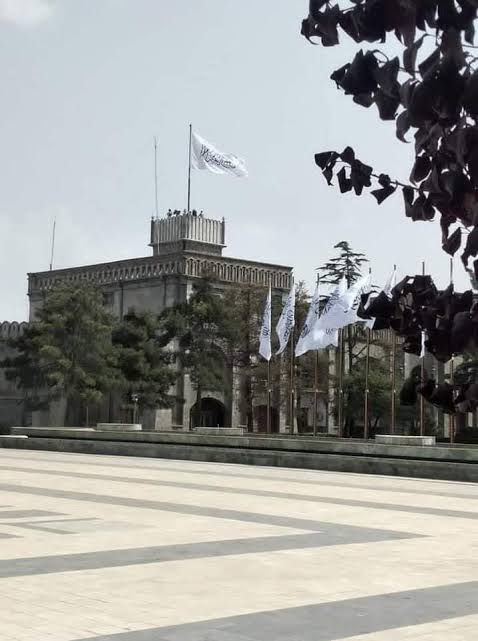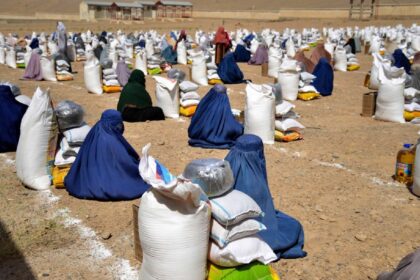RASC News Agency: Amid growing global anxiety over Afghanistan’s deteriorating security environment, senior officials from both the United States and Russia have raised renewed alarms about the Taliban’s failure to curb extremist activity within the country’s borders. These warnings coming from two geopolitical rivals underscore a rare convergence of concern over what appears to be Afghanistan’s return to a haven for transnational terrorist groups. Predictably, the Taliban has dismissed the allegations outright, continuing its pattern of denial despite mounting evidence to the contrary. Speaking at a recent hearing of the U.S. House Foreign Affairs Subcommittee, Congressman Bill Huizenga, chair of the Oversight and Accountability panel, warned that Afghanistan has once again become fertile ground for extremist actors, violating the Taliban’s pledges under the 2020 Doha Agreement. He pointed specifically to the persistent threat posed by Islamic State Khorasan Province (ISIS-K), saying:
“The Taliban claim to be cracking down on ISIS-K, but actionable intelligence shows the group remains operational, lethal, and capable of executing destabilizing attacks both within the region and beyond.” These concerns were echoed by Yuri Kokov, Deputy Secretary of Russia’s Security Council, who in a state media interview said that the continuing instability in Afghanistan poses a direct threat to Central Asia and the Russian Federation. According to Kokov, ISIS-K is actively seeking to expand its operational reach northward, a development made possible by what analysts describe as the Taliban’s unwillingness or inability to confront extremist factions embedded in the country.
In response, Taliban spokesperson Zabihullah Mujahid issued a categorical denial, stating:
“We completely reject the claims made by U.S. lawmakers and Russian officials. No foreign militant group is operating on Afghanistani soil, and we do not allow any entity to use our territory against other nations.” But these statements reminiscent of similar denials over the past two years do little to convince international observers, who point to a growing body of evidence indicating that terrorist sanctuaries in Afghanistan not only persist but flourish under Taliban protection. Reports from regional intelligence agencies, independent think tanks, and even former Taliban insiders suggest that the regime has quietly tolerated or even facilitated the regrouping of extremist outfits, including remnants of al-Qaeda, ISIS-K, and various Central Asian insurgent networks.
One of the most persistent accusations has come from Pakistan, which has repeatedly charged the Taliban with harboring Tehrik-i-Taliban Pakistan (TTP) a faction ideologically aligned with the Afghan Taliban and responsible for a surge in deadly attacks across the Pakistan-Afghanistan border. Islamabad asserts that TTP’s operational capabilities have increased dramatically since the Taliban’s takeover of Kabul, with insurgents using Afghanistani territory as a launchpad for cross-border assaults. Yet once again, the Taliban has chosen the well-worn path of denial. Zabihullah Mujahid has attempted to deflect blame, declaring the TTP crisis an “internal issue of Pakistan” and denying any Afghanistani complicity. This stance has only further strained relations with Islamabad and raised fresh doubts about the Taliban’s credibility as a regional security partner.
Despite repeated international warnings and the Taliban’s performative promises to cut ties with terrorist elements, no verifiable action has been taken. Analysts argue that the group’s ideological sympathies, tribal allegiances, and internal power dynamics make it unlikely that the Taliban will willingly dismantle its longstanding relationships with militant actors. Meanwhile, the humanitarian and diplomatic consequences are growing. Donor fatigue, sanctions, and security concerns have deepened Afghanistan’s isolation. The Taliban’s refusal to engage transparently with global counterterrorism mechanisms has undermined prospects for international recognition and jeopardized what remains of the country’s foreign aid infrastructure.
“Until the Taliban moves beyond blanket denials and begins cooperating meaningfully with the international community, Afghanistan will remain what it has tragically become under their rule: a sanctuary for extremists, a source of regional instability, and a crisis of global concern,” said a Western diplomat on condition of anonymity. In the absence of accountability or verifiable change, the international community continues to view Taliban-ruled Afghanistan not as a partner in regional stability but as a destabilizing force, enabling radicalism while silencing dissent and denying responsibility.






